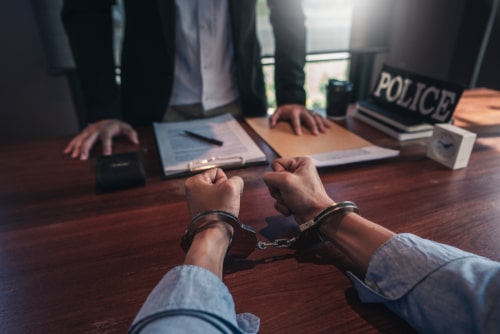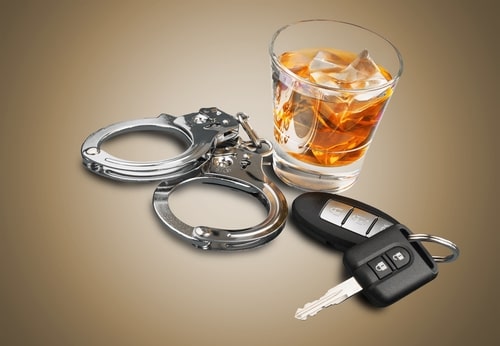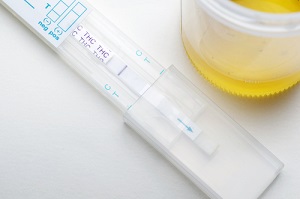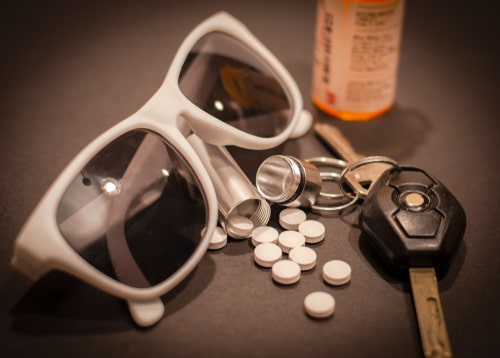2591 Dallas Parkway, Suite 207A, Frisco, TX 75034
Free Consultations
469-333-3333
 |
DO I HAVE TO GO TO TRIAL IN TEXAS? |
Recent Blog Posts
What a Criminal Defense Attorney Can Do for You
 Every day, thousands upon thousands of people are charged with committing alleged criminal offenses. When someone is charged with a crime, their first step should always be hiring a criminal defense attorney. Criminal defense attorneys can provide invaluable assistance throughout the legal process and work to get the best possible outcome for your case.
Every day, thousands upon thousands of people are charged with committing alleged criminal offenses. When someone is charged with a crime, their first step should always be hiring a criminal defense attorney. Criminal defense attorneys can provide invaluable assistance throughout the legal process and work to get the best possible outcome for your case.
If you have been charged with committing a criminal offense, do not hesitate to reach out and contact an experienced criminal defense attorney. Today, we are going to discuss what precisely a criminal defense attorney can do for you.
Benefits of Hiring a Criminal Defense Lawyer
While hiring a criminal defense attorney will not guarantee a favorable outcome, by hiring an attorney, you put yourself in a position where a favorable outcome is possible. Some examples of what a criminal defense attorney can do for you include the following:
What Crimes Are Ineligible for An Attorney Writ Bond in Collin County?
 As you may be aware, in Texas, an attorney writ bond is a type of bail bond that can be used to secure the release of someone who has been arrested and is being held in jail. Among the plethora of unpleasantries involved with being arrested, one of the more dreaded aspects is sitting in prison for days waiting to be put in front of a judge. Luckily, attorney writ bonds allow certain alleged offenders to be released from jail, sometimes even within hours of arrest.
As you may be aware, in Texas, an attorney writ bond is a type of bail bond that can be used to secure the release of someone who has been arrested and is being held in jail. Among the plethora of unpleasantries involved with being arrested, one of the more dreaded aspects is sitting in prison for days waiting to be put in front of a judge. Luckily, attorney writ bonds allow certain alleged offenders to be released from jail, sometimes even within hours of arrest.
However, while attorney writ bonds are eligible for crimes such as a first or second DWI, marijuana possession, theft, and most Class A and Class B misdemeanors, other crimes do not qualify for attorney writ bonds. Today, we will discuss the crimes that are not eligible for an attorney writ bond. In any event, if you or a loved one has been arrested, consider contacting a qualified Texas attorney.
Why Do People Confess to Crimes They Did Not Commit?
 False confessions are a troubling phenomenon in the criminal justice system. It is a situation where a person confesses to a crime they did not commit. To many people, it is incomprehensible to imagine why someone would ever admit to a crime they did not commit; however, it happens more often than you might expect. Today, we are going to review the reasons why someone would ever make a false confession. If you are ever charged with committing a crime, do not hesitate to reach out and obtain the legal counsel of an experienced criminal defense attorney who will work to ensure that you understand your rights and exactly what you are up against.
False confessions are a troubling phenomenon in the criminal justice system. It is a situation where a person confesses to a crime they did not commit. To many people, it is incomprehensible to imagine why someone would ever admit to a crime they did not commit; however, it happens more often than you might expect. Today, we are going to review the reasons why someone would ever make a false confession. If you are ever charged with committing a crime, do not hesitate to reach out and obtain the legal counsel of an experienced criminal defense attorney who will work to ensure that you understand your rights and exactly what you are up against.
Four Reasons Someone May Make a False Confession
Firstly, false confessions can result from coercion or duress. Police officers may use intimidation tactics or even threats to get a confession from a suspect. Sometimes, the person being interrogated may feel they have no other option but to confess, even if they know they are innocent. They may feel overwhelmed, scared, and helpless, believing confessing will make the situation go away or alleviate their suffering.
Supporting a Family Member Who Is Facing DWI Charges
 In most cases, people want the best for their family members, which is why it can be heartbreaking to see a loved one be arrested and charged with a serious crime, such as driving while intoxicated (DWI). The thought of your loved one going to prison can be too much for someone to bear. As a result, if you are someone who watched your loved one be arrested for DWI, you are likely wondering how you can best help this person.
In most cases, people want the best for their family members, which is why it can be heartbreaking to see a loved one be arrested and charged with a serious crime, such as driving while intoxicated (DWI). The thought of your loved one going to prison can be too much for someone to bear. As a result, if you are someone who watched your loved one be arrested for DWI, you are likely wondering how you can best help this person.
First off, it is crucial to remain calm. Just because your loved one is charged with DWI does not mean they are guilty by default. They have rights, such as the right to a fair trial, and by virtue of these rights, they may be able to vindicate themselves in due time. It is very much in your loved one’s best interests to hire a qualified DWI attorney who can help protect their rights and ensure they are treated fairly by the legal system and law enforcement as their case develops. Today, we will examine how a family member can support their DWI-accused loved one in their time of greatest need.
Understanding the Charges of Drug Possession with Intent to Deliver or Manufacture
 It is no secret that the state of Texas takes drug offenses very seriously. This is especially the case when there is reason to believe that an alleged drug offender had the intent to deliver or manufacture. Therefore, if you have been charged with manufacturing drugs, possessing them, and intending to sell those manufactured drugs, understand that you are in extreme legal jeopardy. When someone is convicted on these types of charges, it is not uncommon for them to spend decades or even the rest of their natural life in prison.
It is no secret that the state of Texas takes drug offenses very seriously. This is especially the case when there is reason to believe that an alleged drug offender had the intent to deliver or manufacture. Therefore, if you have been charged with manufacturing drugs, possessing them, and intending to sell those manufactured drugs, understand that you are in extreme legal jeopardy. When someone is convicted on these types of charges, it is not uncommon for them to spend decades or even the rest of their natural life in prison.
Today, we will look at what it means to deliver drugs, what intent to manufacture means, and more. If you have been charged with such crimes, do not hesitate to contact an experienced criminal defense attorney well-versed in cases involving serious drug offenses. While your situation may be dire, hope is still on the horizon. Retaining high-quality legal counsel is the first step in working towards a favorable case outcome in your case.
Is It Illegal to Use Synthetic Urine for a Drug Test in Texas?
 There is no question that the perception of marijuana is rapidly changing across a significant number of states. However, in the state of Texas, laws regarding marijuana remain among the strictest in the nation. As a result, many employers in Texas require prospective employees to submit to a drug test before they are hired. The most common form of drug testing for employers is urine analysis. These tests, considered accurate, test for substances such as THC, cocaine, opiates, methamphetamine, and more.
There is no question that the perception of marijuana is rapidly changing across a significant number of states. However, in the state of Texas, laws regarding marijuana remain among the strictest in the nation. As a result, many employers in Texas require prospective employees to submit to a drug test before they are hired. The most common form of drug testing for employers is urine analysis. These tests, considered accurate, test for substances such as THC, cocaine, opiates, methamphetamine, and more.
For the purpose of today’s discussion, we will focus on marijuana and the negative legal consequences that can arise if someone were to try and cheat a urine analysis test. Something that makes urine analysis testing for marijuana somewhat unfair is that marijuana can stay in your system for an extended period of time, unlike many other illicit drugs, like cocaine or heroin, which remain in the system for only a few days at most. As a result, many people resort to using products like synthetic urine to beat a marijuana urine analysis test because of the time it takes to leave one’s system. If you have been arrested for a marijuana-related offense or fabricating the results of a urine analysis test, contacting an experienced criminal defense attorney may be wise to avoid a detrimental conviction.
What to Know About Stalking and Harassment in Texas
 There are many different situations in which someone may be accused of harassing or stalking another person. One of the more familiar scenarios is after a relationship ends, an ex tries to stay in contact with their former partner. In other scenarios, someone may be wrongfully accused of stalking or harassing someone. Whatever the case, Texas law does not take accusations of stalking and harassment lightly. And if there is probable cause that a crime has been committed, police officers can and will arrest and charge alleged offenders.
There are many different situations in which someone may be accused of harassing or stalking another person. One of the more familiar scenarios is after a relationship ends, an ex tries to stay in contact with their former partner. In other scenarios, someone may be wrongfully accused of stalking or harassing someone. Whatever the case, Texas law does not take accusations of stalking and harassment lightly. And if there is probable cause that a crime has been committed, police officers can and will arrest and charge alleged offenders.
If you have been arrested and charged with stalking or harassment, you would be wise to contact an experienced stalking and harassment attorney to help protect your rights and represent you as you and your lawyer together work to overcome the charges levied against you.
What Is Harassment and What Are the Associated Penalties?
Understanding the Law Surrounding Marijuana Edibles in Collin County
 We are currently living in very interesting times regarding the topic of marijuana in the United States. While various states have passed laws considered more lenient towards marijuana, even in some cases legalizing the recreational use of the drug, many states, including Texas, still prohibit marijuana and virtually all its forms in the strongest possible terms. Today, we will look at the laws in Texas regarding marijuana in edible form.
We are currently living in very interesting times regarding the topic of marijuana in the United States. While various states have passed laws considered more lenient towards marijuana, even in some cases legalizing the recreational use of the drug, many states, including Texas, still prohibit marijuana and virtually all its forms in the strongest possible terms. Today, we will look at the laws in Texas regarding marijuana in edible form.
However, if you live in Texas and have been arrested on a marijuana-related charge, you would be wise to contact an experienced criminal defense attorney to help ensure your rights remain protected and that a positive outcome can be pursued in your case.
What Is the Law for Cannabis Edibles?
In case you are unfamiliar, the psychoactive chemical in marijuana flower, THC, is frequently extracted as a concentrate and infused into various foods, like cookies, brownies, beverages, and so on. In Texas, the law for marijuana edibles is substantially different than marijuana flower. The Texas Controlled Substances Act categorizes THC products under penalty group two, meaning that possessing THC edibles is considered to be a more serious offense than possessing marijuana flower. For example, if caught with less than four ounces of marijuana flower in Texas, this is considered a misdemeanor offense. However, if you are caught with less than one gram of marijuana concentrate like found in edibles, the charge is escalated to a felony, punishable by up to two years in prison and fines up to $10,000.
What to Know About DWI Involving Prescription Drugs in Texas
 When most people think about driving while intoxicated, they tend to think of people drinking and driving. This is understandable, as drinking and driving is the most common form of DWI. However, driving after consuming alcohol is not the only way to be charged with DWI. You may be surprised that you can be charged with DWI in Texas even if you are under the influence of prescribed medication.
When most people think about driving while intoxicated, they tend to think of people drinking and driving. This is understandable, as drinking and driving is the most common form of DWI. However, driving after consuming alcohol is not the only way to be charged with DWI. You may be surprised that you can be charged with DWI in Texas even if you are under the influence of prescribed medication.
Being arrested, charged, and convicted of DWI can devastate one’s life and career. If you have been charged, you are likely wondering what can be done to ensure you can avoid prison time or costly fines. The most important thing you can do during this critical time is to contact a knowledgeable DWI attorney who will work with you to ensure your rights remain protected while pursuing the most favorable outcome possible.
Laws Regarding DWI in Texas
Texas law states that you cannot operate a motor vehicle while impaired by any substance. This means alcohol, drugs, and even some prescription medications. This is because substances can affect certain mental and physical faculties, which makes it exceedingly dangerous to try and operate a motor vehicle. In addition, hundreds of prescription medications can make driving hazardous and illegal, including Xanax, oxycodone, Valium, and many more. Shockingly, even some antihistamine drugs that fight allergies may impair you to the point where driving becomes dangerous and unlawful.
What Is an Attorney Writ Bond, and How Can It Help You Get Out of Jail Sooner?
 You may have heard of stories where someone is arrested on suspicion of having committed a crime. That individual is forced to sit for several miserable days in jail before getting in front of a judge. This typically happens on weekends. In Texas, the law states that a suspect is usually required to go before a judge so that bail can be set. Once bail is set, the suspect can secure a bond and then be released. What if there was a better option that did not require suspects to be held in jail for days?
You may have heard of stories where someone is arrested on suspicion of having committed a crime. That individual is forced to sit for several miserable days in jail before getting in front of a judge. This typically happens on weekends. In Texas, the law states that a suspect is usually required to go before a judge so that bail can be set. Once bail is set, the suspect can secure a bond and then be released. What if there was a better option that did not require suspects to be held in jail for days?
The good news is that there is a better option! In Texas, you are likely eligible for a writ bond if you have been arrested for certain non-violent offenses. A writ bond is a procedure an experienced licensed attorney can set up with the Sheriff's Department. This arrangement can get someone out of jail without first having to go before a judge. If you have been arrested, contact an attorney with experience in attaining writ bonds for clients suspected of having committed a crime so that you can get out of jail only a few hours after being arrested instead of sitting in jail for days.


 600+ DWI & CRIMINAL DEFENSE TRIALS
600+ DWI & CRIMINAL DEFENSE TRIALS
















